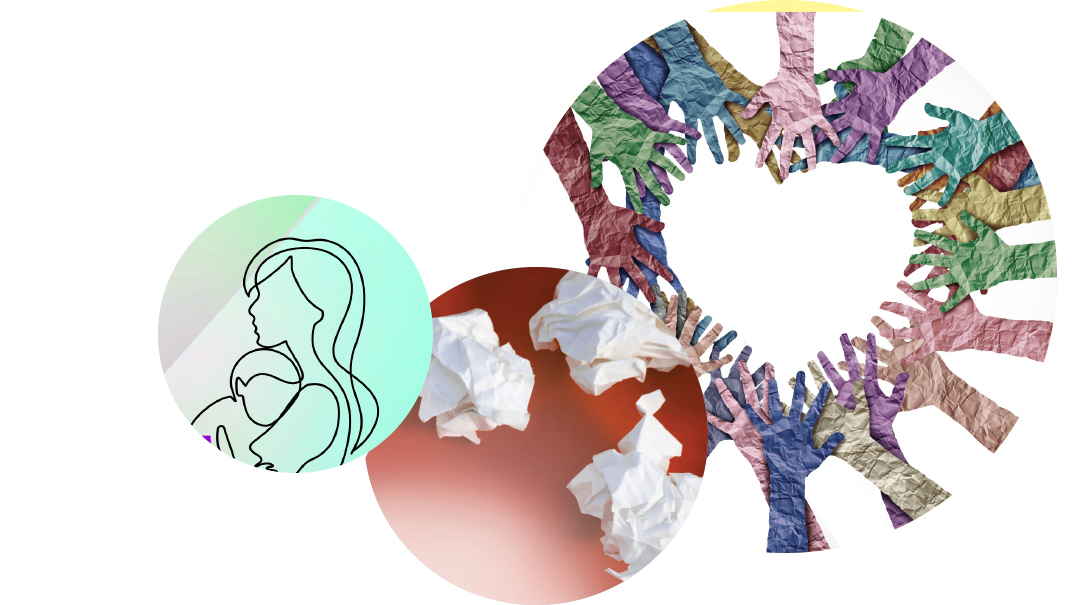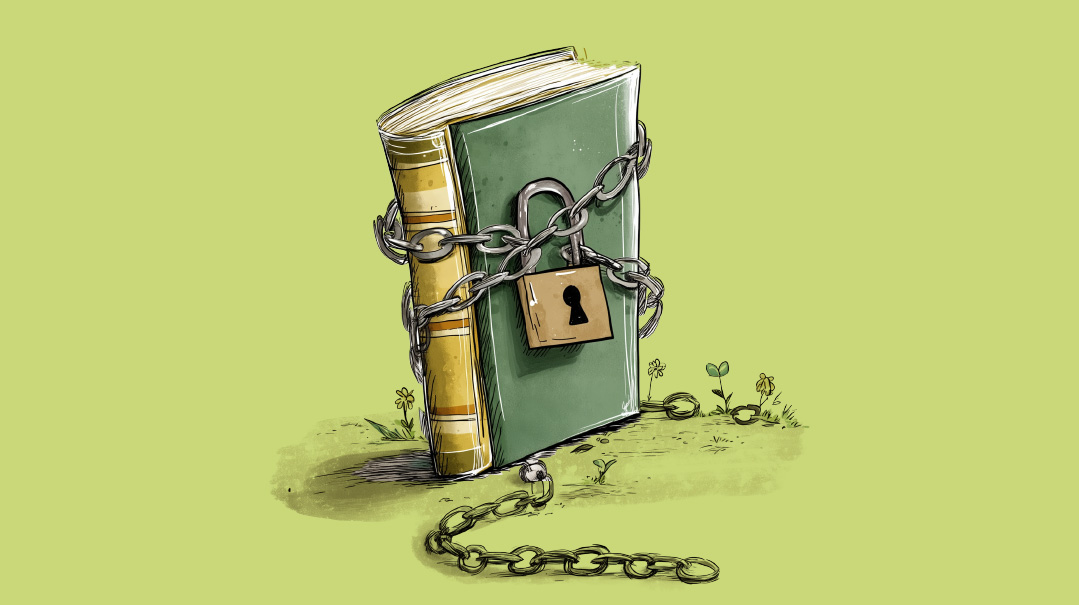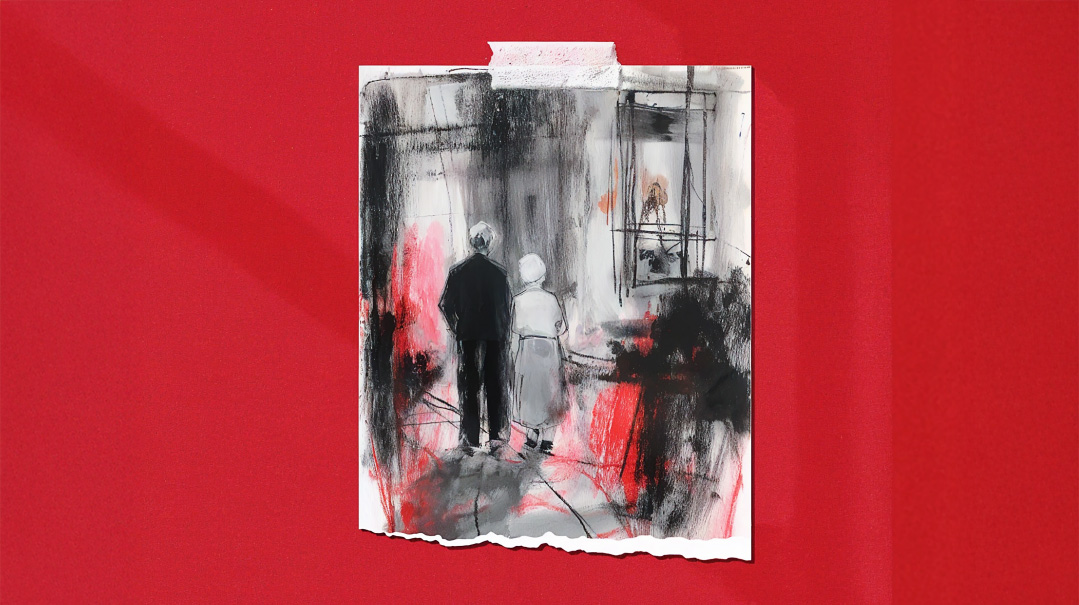Family First Inbox: Issue 739

"R-E-L-A-X! Let your girls be. Let them start shidduchim when they’re really ready; they’ll be happier, healthier spouses"

R-E-L-A-X [Words Unspoken / Issue 737]
I’m writing in response to the Words Unspoken written by the mother of a girl about to return from seminary who is concerned about her daughter’s attitude toward shidduchim. She is worried, very worried, about the panic she sees in the19-year-old girls just home from seminary. Chaval. If only she had read her own letter. “The mothers confide in me how worried they and their daughters are.” Bingo.
When girls panic, 98 percent of the time it’s because of the vibes they pick up from their parents. If your mindset is one of anxiety and panic because your daughter who returned from seminary three days ago doesn’t have a date lined up, then don’t be surprised that your daughters and her friends are panicking.
The eitzah is not to beg the seminary teachers to spend the next few months “instilling bitachon” into your precious daughters. The eitzah is for the parents to spend the next few months getting a grip and developing a healthy perspective on 19-year-olds in shidduchim. If parents have a healthy perspective, their daughter will mirror it.
Here’s my two cents: Everyone should begin shidduchim at the time appropriate for them. Just because your child turns 16 doesn’t mean she needs to get a driver’s license, and just because your daughter flew from Ben-Gurion to JFK after you spent $25K on eight months of seminary doesn’t mean she needs to begin shidduchim!
Singles should begin shidduchim when they and their parents (and, when appropriate, their rav/rebbi) feel that they are ready for marriage. The decision to begin shidduchim should never be based on image (what will they say?) or on fear of not getting married.
Many girls are pressured into starting shidduchim sooner than they’d like.
R-E-L-A-X! Let your girls be. Let them start shidduchim when they’re really ready; they’ll be happier, healthier spouses. And by the way, many boys and their families will tell you they prefer a girl who is 21 to a girl who is 19. So don’t panic, don’t rush into anything.
Moshe Pogrow
NASI Project
Where the Bitachon Is [Words Unspoken / Issue 737]
Dear Mom of a Seminary Girl,
I read your passionate Words Unspoken asking your daughter’s seminary teachers to instill bitachon in her and her classmates before they come home and begin the grueling parshah of shidduchim.
Your sentiments are nice, but you have it all wrong.
It is not your job, nor the job of your daughter’s teachers, to preach to them about bitachon when you are not lifting a finger to assist them practically.
You state that you see the panic of the girls in shidduchim. They are panicked for good reason!
They know exactly what they are facing: It may be months before a suitable shidduch comes their way, and if it doesn’t work out, it may be many months more before another one comes up. They know they may be left behind when their good friends get married. They know that as smart and capable and talented as they are, they could still be the ones left to battle years of loneliness just like their older smart and talented friends and relatives are.
You wonder where the bitachon is. I’ll tell you where it is.
You see all the single girls and women around you? You see that they are still frum and keep all the mitzvos despite being all alone? You see that they daven and do chesed and are sane and productive and happy despite having nothing going on in the shidduch scene for months or years on end? That’s where the bitachon is. They are staying loyal to Hashem despite everything because they know that everything He does is good.
So what is your role in all this? Your job is the hishtadlus. Just like you would not tell an overwhelmed new mother to have bitachon but would send over meals, and just like you would not tell an unemployed individual to have bitachon but would try to find him a job, you should not be telling the girls to have bitachon.
See what you can do to practically even the numbers of boys and girls in shidduchim so that we are not left with such a disparity that the girls cannot even get a date.
B.N.
Supporting a Spouse [Support from the Sidelines / Issue 737]
Esther Ilana Rabi addressed the topic of supporting a spouse through a parent’s death so well. As a wife who unfortunately lost a father-in-law this year, as well as director of volunteers of the PCHAI Chai Lifeline Crisis, Trauma, and Bereavement Department, I would like to add some insights I’ve noted.
Shivah comes and you are there supporting the family throughout the entire week. You and your children are grieving as well. As I said during my husband’s shivah, he was “sitting” shivah and I was “standing” shivah. This is a time to spend with your family in the beis aveilim. To hear more about your in-law, to share your stories, and to begin processing yours and your children’s grief. It is a time where loads of family bonding can happen.
And then your spouse comes home and the year of aveilus begins. The Torah recognizes the importance of grief and gives us a framework for it.
But it’s a hard year. There are so many triggers and reminders: Remember when we made the decision to go to the hospital? Remember when we decided to switch doctors?
I’ve received many phone calls from spouses: “My spouse is not the same, when do I come back in the picture?”
“My wife is not focusing, is this normal?”
“My husband needs to remember that he has a family as well at home.”
“There are so many unresolved issues, there’s so much guilt....”
Just when you begin to see progress, your spouse takes a step back and regresses into a personal world of grief, which you have no part of. And the first yahrtzeit often retriggers all those emotions, and you as a spouse are lost once again, wondering, “Did I lose him again? Will she ever be fine again?”
Here are a few tips:
- Remember that you’re there as a supportive, listening spouse — not as a therapist. Your job is to be there.
- Remember that your spouse just experienced a loss and needs to grieve.
- Give your spouse all the time, space, and permission needed to process what has just occurred.
- Realize that your spouse may connect to his/her family more than ever before. They are the only ones who truly understand each other. That doesn’t mean you have been forgotten.
- This may take time. Longer than you ever anticipated. But with your respect and support, one day you will realize, hey, my spouse is back, but with a much greater understanding of the needs of human life (especially yours and your children).
This may all sound simple, but it’s really not. Give yourself the validation that yes, this is hard. Your having a hard time does not minimize your spouse’s pain; it shows how real this all actually is.
May all couples who are mourning be able to move forward, stronger and better.
Mrs. Malkie Klaristenfeld
Director and Founder of Knafayim
Director of Volunteers PCHAI Chai Lifeline
Life in Recovery [Inbox /Issue 735]
I’ve been reading with interest the recent influx of stories and letters about addiction, particularly two recent letters from women whose husbands are addicted to behaviors that challenge the foundation of their marriages.
I am a Jewish woman and I struggled with similar compulsive behaviors for many years. There was so much shame and confusion surrounding my behavior that it took me a long time to find help. But I am writing to say that help does exist. I work a recovery program on a daily basis and it has given me a new lease on life.
Addiction does not discriminate; it doesn’t care if you’re a man or a woman, if you’re rich or poor, frum or secular. It is a disease that people do not choose to have, but one they can choose to recover from. I can honestly say that my life today in recovery is fulfilling, beautiful, and free from the shame and secrecy that I thought would follow me for the rest of my life.
Thank you, Mishpacha, for your part in helping to break the stigma and silence around addiction in all its forms. If any women struggle with similar addictive behaviors and want to reach out, I can be contacted through Mishpacha.
A Jewish Woman in Recovery
Growing into Our Challenges [Split / Issue 734]
I’m the mother of a daughter with severe medical and special needs, and I strongly related to Shoshana Green’s emotions and her retelling of her family’s experience in her serial Split. Since my daughter was born, people have been telling me that Hashem doesn’t give us any tests that we can’t handle, in an attempt to give me and my family chizuk.
Their words never sat right with me. This is the chizuk that you are trying to give me? Why can’t Hashem test me with a million dollars instead? Why do we have to go through the trauma of intense doctor appointments with horrible diagnoses and long and draining hospital stays?
But then I read Shoshana’s words and I finally felt like I had an answer. Like Shoshana, I didn’t have a holy approach to my daughter’s condition from the beginning — and I still don’t. Like Shoshana, when I am screaming with questions, I don’t always understand Hashem’s plan. Like Shoshana, aspects of my life are difficult. But my life is also wonderful, and like Shoshana, I thank Hashem for my children every day.
Shoshana really said it best: “Hashem gives us challenges and along the way we grow into people who can handle them.” This resonated so strongly that I actually started to cry as I read her words. Finally, someone wasn’t telling me that Hashem is challenging me because He knows I can handle it. When my daughter was first born, I couldn’t handle it. But along the way, thanks to His Help and the help of some amazingly supportive people around me, my family and I grew into people who can handle the challenges He gives us.
Thank you to Shoshana for writing this highly informative serial and for the chizuk you provided along the way!
Sara Schwartz
(Originally featured in Family First, Issue 739)
Oops! We could not locate your form.







